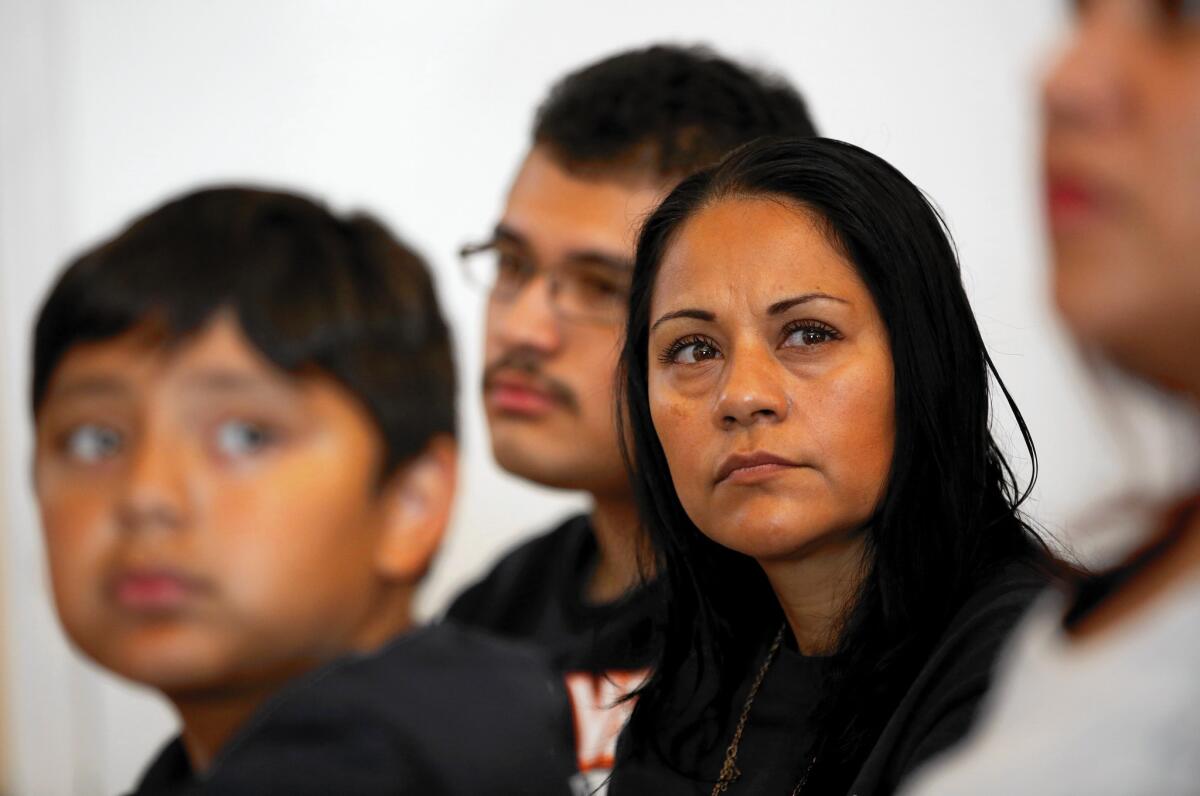35 California counties grant healthcare to immigrants in U.S. illegally

- Share via
In the latest wave of such decisions, a group of 35 mostly rural counties in California agreed this week to grant healthcare to immigrants in the country illegally.
For several years, just 11 of the state’s 58 counties provided some form of low-cost medical care to these uninsured immigrants. But as of this month, 47 of the state’s counties have promised to do so.
Healthcare services in 35 of the smallest counties are managed by a state outfit known as the County Medical Services Program. Mostly clustered in the northern part of the state, these counties include Sonoma, Solano and Marin, but also Imperial, at the Mexico border.
For the first time in its more than 30-year history, the panel that governs the program voted Thursday to offer primary medical care to people who have entered the country illegally.
“Even if these are not the most populated counties, for this to be available in nearly half of the geography of California is an important step,” said Anthony Wright, executive director of Health Access California. Officials say a few thousand people could enroll in the program across the member counties.
Don Saylor, a supervisor in Yolo County — which participates in the program — said that offering health coverage will stop people from turning to costly emergency rooms for routine care. He also said that it is vital for preventing the spread of communicable diseases.
“Frankly, it’s just the right thing to do,” Saylor said in an interview Friday. “For us to have an underclass that is left out is unconscionable.”
How to provide healthcare to the state’s 2.7-million immigrants here illegally has been a recurring policy debate across the state this year. The population is barred from signing up for insurance under the Affordable Care Act and now makes up the single biggest group of Californians without insurance.
State legislators this year considered a bill that would have provided healthcare to more than a million immigrants in the country illegally. But when Gov. Jerry Brown signed the new state budget this week, it was pared down to cover only children here illegally.
Under a 1930s state law, counties are required to “relieve and support all incompetent, poor, indigent persons.” While many large, urban counties, including Los Angeles, Ventura, San Francisco and eight others, have interpreted that mandate to include people in the country illegally, the vast majority of the state’s counties historically have not.
But with most other Californians now insured under the Affordable Care Act, many county officials have been rethinking those decisions.
This month, Sacramento County supervisors unanimously decided to expand healthcare coverage to undocumented immigrants who live in their county. Advocates in Contra Costa and Monterey counties are pushing for their officials to make a similar decision.
The County Medical Services Program panel’s vote, along with other changes it made Thursday, are expected to cost between $6 million and $9 million over two years. The new program probably will begin next year.
Wright said what happened this week could spur officials in other counties to take a second look at their policies affecting those in the country illegally.
“These are decisions that both will have a real, beneficial impact on specific California families, and will also improve our health system as a whole, and are symbolically important,” he said.
Follow @skarlamangla on Twitter for more California health news.
Karlamangla reported on the remaining uninsured as a California Health Journalism Fellow at USC’s Annenberg School of Journalism.
More to Read
Sign up for Essential California
The most important California stories and recommendations in your inbox every morning.
You may occasionally receive promotional content from the Los Angeles Times.











